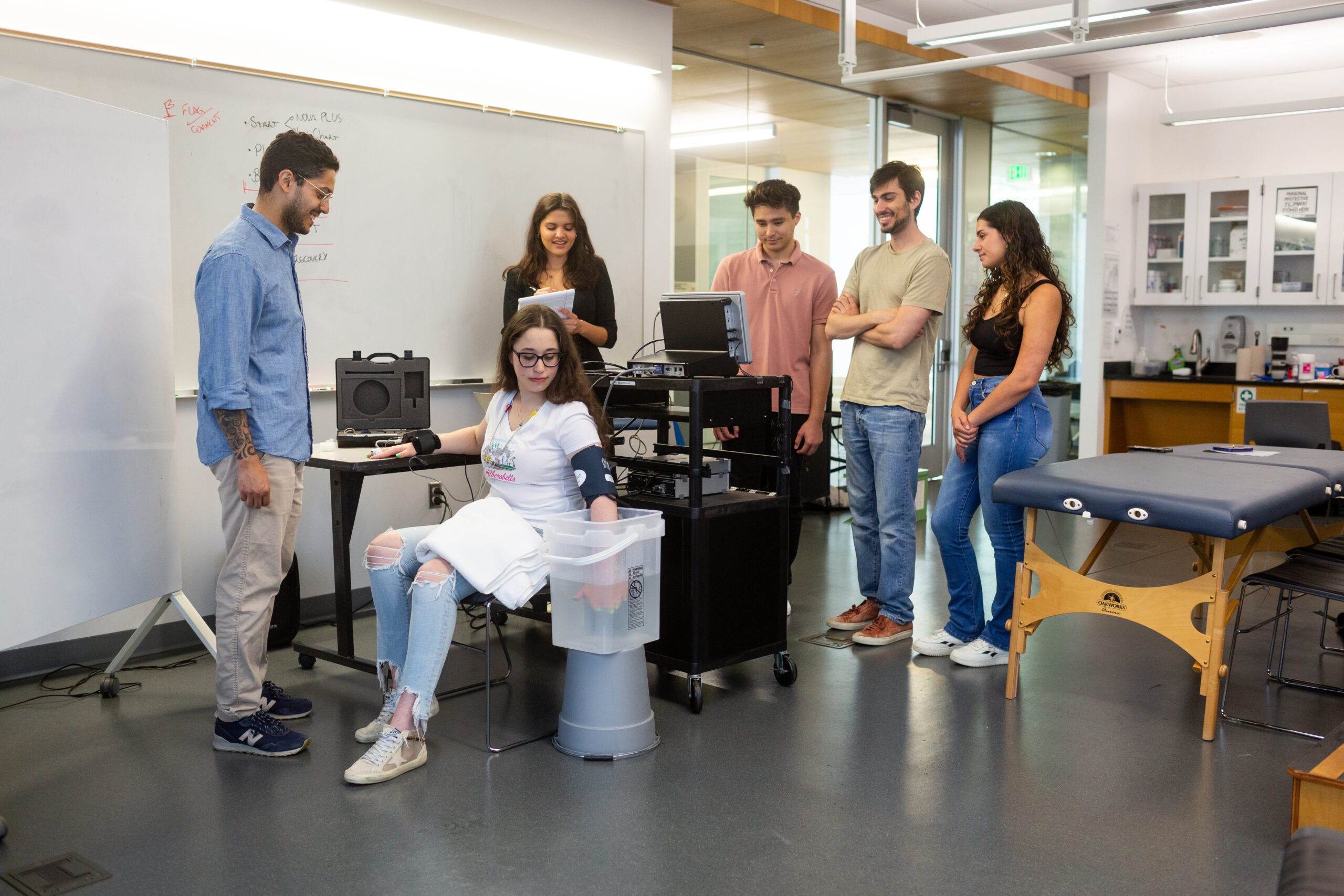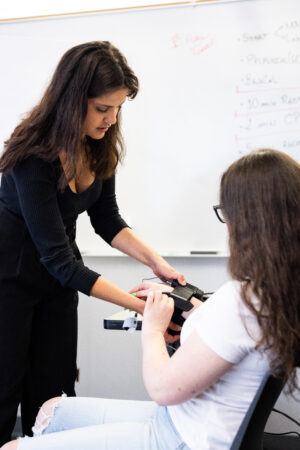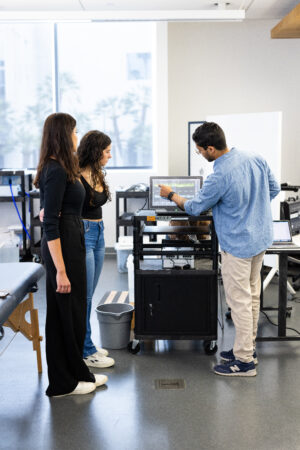
This summer, more than 80 students and faculty made up the Seaver Summer Research Community. The topics ranged from studying anti-fungal properties of plant extracts, to heat transfer properties of different liquids, and more. We connected with some of the students to learn more about their research projects. Today, we spotlight biology major Jenna Ellinghuysen ’26, mentored by Caio Sousa, assistant professor of health and human sciences.
Tell us about the research you’re working on this summer.

In my research project, we are exposing the participant to a stressful event and seeing how their body reacts before, during, and after the event. In our study, the stressful event is placing your hand in cold water for 2 minutes. The overall procedure of the project is to place an arm cuff, a finger cuff, and EKG leads on the participant which hooks up to a machine called FINAPRES NOVA. This machine collects the heart rate, EKG, and blood pressure information continuously. Afterwards, we monitor the participant for 10 minutes before the event, 2 minutes during the event, and 5 minutes after the event. Then, we take the data and analyze the blood pressure and other values to see how the participant’s body reacts to stress.
How does your research relate to other fields?
My project is linking cardiovascular health with how the body responds to stress. This would interest many people, because everyone goes through big and small stresses every day, so being able to know how your body responds to it can be a big help in understanding how you may feel before or after stressful events (energized, tired, etc).
What’s the biggest lesson that you’ve learned from your research?
You learn a multitude of skills such as time management, group collaboration, long-term project management, and exploration. There is so much I did not know before my research project, but by being open, I have been able to explore topics at a high level.

How does your research compliment your coursework?
My research compliments my coursework because I am using the knowledge that I have learned in anatomy and physiology to understand how our project works. It is very interesting to link what you have learned in the classroom to real-life applications, especially in a research project you are interested in.
Do you have any advice for someone on the fence about doing research?
I would suggest giving it a chance. You never know how something can change your life before you do it. Through SURP, I have found friends that I would have otherwise never met and have learned so much about networking, resumes, and how to succeed in the professional world.
This is part of a series on summer research students are conducting in Seaver College.
Edited by Noemie Boucher ’25



